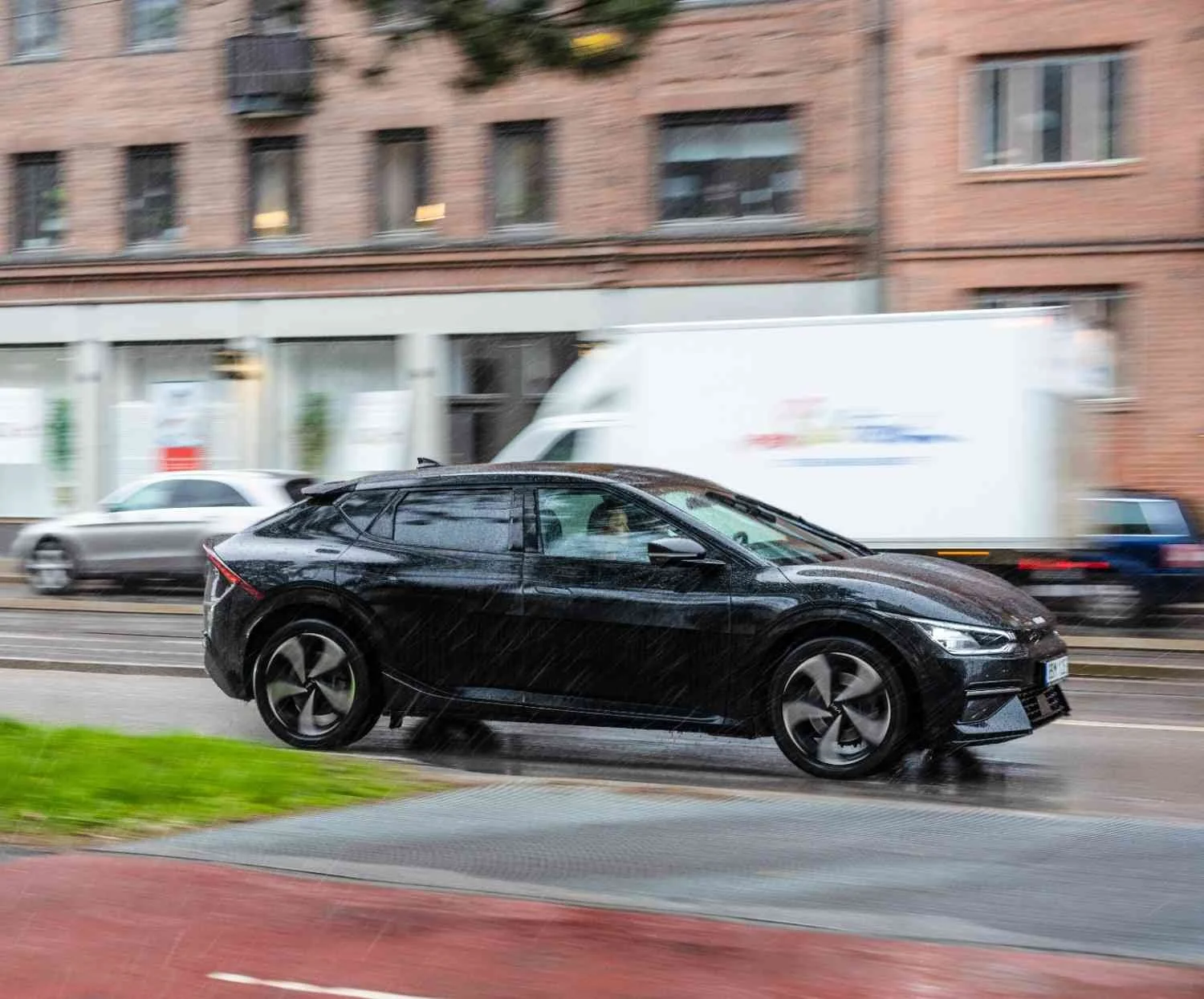HMRC Splits EV Mileage Reimbursement Rates: Why This is Important for Electric Car Salary Sacrifice Drivers
Source: Shutterstock
In a landmark decision that addresses years of industry concern, HMRC has announced it will split the Advisory Electric Rate (AER) for electric vehicles, introducing separate reimbursement rates for home and public charging. This change represents the most significant update to EV mileage rates since their introduction and will particularly benefit drivers participating in electric car salary sacrifice schemes.
The New Split Rate System
From 1st September 2025, company car drivers and those with salary sacrifice electric cars will benefit from two distinct reimbursement rates:
Home charging: 8 pence per mile (up from 7p)
Public charging: 12 pence per mile (a 71% increase from the previous flat rate)
The public charging rate uses a 'slow or fast public charge cost per kilowatt-hour' figure taken from the Zapmap public charging price index monthly published figure for slow or fast chargers (charging speed less than 50kW), uprated with the latest estimate of electricity prices from the Office for National Statistics.
This represents a major victory for fleet managers and EV advocates who have long argued that the previous single rate of 7p per mile failed to reflect the reality of electric vehicle charging costs, particularly for business travel requiring public charging infrastructure.
Why This Change Matters for Salary Sacrifice Drivers
For employees who have chosen to salary sacrifice their electric car, this announcement addresses a significant financial burden. Previously, drivers using company EVs or salary sacrifice vehicles faced substantial out-of-pocket costs when undertaking business travel that required public charging.
Previous analysis, conducted by Paua, showed that a company car driver doing as little as 20% of their charging on the public network can be faced with a shortfall of £200 or more, when covering the cost of work travel using the Government's AER rate of 7ppm.
The impact was even more severe for high-mileage drivers:
A Polestar 2 driver covering 6,000 business miles annually with majority public charging would have been out of pocket by £800 per year
A Jaguar I-Pace driver doing 10,000 business miles with all public charging faced a shortfall of over £2,000 annually
Industry Response and Long-Awaited Reform
Paul Hollick, chair at the Association of Fleet Professionals (AFP), welcomed the change: "This is very good news for fleets. We've been working alongside the BVRLA for some time to promote the idea of split public and private charging AER rates and, while it has been a long, long process, we're delighted that HMRC has listened."
The reform has been years in the making, with industry bodies including the Association of Fleet Professionals and the British Vehicle Renting and Leasing Association collaborating since 2021 to advocate for this change. The previous system was particularly criticised for not accounting for the significant price variations between home and public charging.
How the New Rates Work
The split system addresses the fundamental cost difference between charging methods:
Home Charging Rate (8p per mile)
Based on a domestic electricity cost of 27.04p per kilowatt-hour
Uses an electrical efficiency of 3.59 miles per kilowatt-hour (weighted by car sales)
Reflects the convenience and cost-effectiveness of overnight home charging
Public Charging Rate (12p per mile)
Calculated using an electricity cost of 51p per kilowatt-hour from slow/fast public chargers
Uses the same efficiency calculation but accounts for higher public charging costs
Covers the premium for convenience charging during business travel
Impact on Electric Car Scheme Participants
This change is particularly significant for employees participating in company electric car schemes. With the current Benefit-in-Kind rate at just 3% for 2025/26, electric car salary sacrifice already offers substantial savings of 20-50% compared to traditional leasing.
The new mileage rates enhance these benefits by:
Eliminating charging-related financial penalties for business travel
Encouraging EV adoption by removing a significant barrier to electric company cars
Supporting longer business journeys without fear of inadequate reimbursement
Making electric vehicles more attractive to high-mileage company car drivers
Limitations and Considerations
While the new rates represent a significant improvement, they don't cover all charging scenarios. The most recent Zapmap Price Index highlights average costs of 76p per kWh for ultra-fast chargers, which is 50 per cent higher than the stated AER. This means drivers using ultra-rapid chargers (over 150kW) may still face some out-of-pocket costs.
However, employers retain the flexibility to use higher rates if they can demonstrate that actual charging costs exceed the advisory rates. Any excess reimbursement above the HMRC rates would be subject to tax and National Insurance contributions.
Looking Forward: Enhanced EV Business Case
This reform significantly strengthens the business case for electric vehicle adoption through salary sacrifice schemes. By addressing one of the main practical concerns about company EV usage, HMRC has removed a barrier that previously discouraged business travel in electric vehicles.
For employees considering the best electric cars to salary sacrifice, this change means:
Fairer business mileage reimbursement regardless of charging method
Greater confidence in choosing electric vehicles for roles involving business travel
Reduced financial risk when driving electric company cars
Enhanced value proposition for salary sacrifice participation
Complementary Charging Solutions
The new rates work particularly well alongside innovative solutions like The Charge Scheme, which allows employees to salary sacrifice their EV charging costs. By combining fair mileage reimbursement with tax-efficient charging arrangements, drivers can maximise their savings while minimising administrative complexity.
Enhancing the EV Value Proposition
HMRC's decision to split EV mileage reimbursement rates represents a watershed moment for electric vehicle adoption in the UK business sector. By acknowledging the cost realities of public charging, this change removes a significant barrier to EV uptake and makes electric car salary sacrifice schemes even more attractive.
For businesses offering employee electric car schemes, this development enhances the value proposition whilst supporting the UK's transition to zero-emission transport. As charging infrastructure continues to expand and improve, fair reimbursement rates ensure that the financial benefits of electric vehicle ownership are fully realised by employees making the switch.
The split rate system represents HMRC listening to industry concerns and adapting policy to support the UK's electrification goals. For salary sacrifice drivers, it marks the beginning of a new era where choosing electric doesn't mean accepting financial penalties for business travel.
Are you an employer?
BOOK A DEMOAre you an employee?
SEE AVAILABLE CARSYou might also like…
Last updated: 04/08//25
Our pricing is based on data collected from The Electric Car Scheme quote tool. All final pricing is inclusive of VAT. All prices above are based on the following lease terms; 10,000 miles pa, 36 months, and are inclusive of Maintenance and Breakdown Cover. The Electric Car Scheme’s terms and conditions apply. All deals are subject to credit approval and availability. All deals are subject to excess mileage and damage charges. Prices are calculated based on the following tax saving assumptions; England & Wales, 40% tax rate. The above prices were calculated using a flat payment profile. The Electric Car Scheme Limited provides services for the administration of your salary sacrifice employee benefits. The Electric Car Scheme Holdings Limited is a member of the BVRLA (10608), is authorised and regulated by the FCA under FRN 968270, is an Appointed Representative of Marshall Management Services Ltd under FRN 667174, and is a credit broker and not a lender or insurance provider.
Copyright and Image Usage: All images used on this website are either licensed for commercial use or used with express permission from the copyright holders, in compliance with UK and EU copyright law. We are committed to respecting intellectual property rights and maintaining full compliance with applicable regulations. If you have any questions or concerns regarding image usage or copyright matters, please contact us at marketing@electriccarscheme.com and we will address them promptly.




